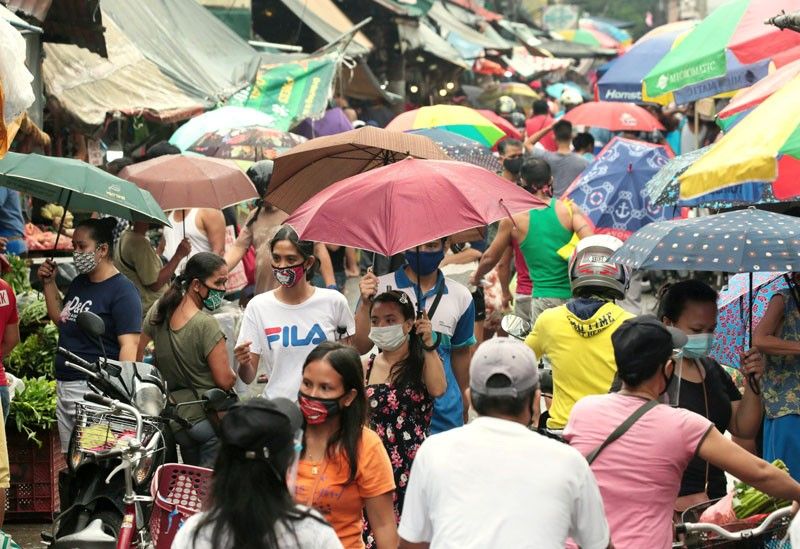'What stagflation?': Diokno downplays feared combo of recession, inflation

MANILA, Philippines — Is the Philippines currently experiencing a bad combo of economic meltdown, massive joblessness and spiking inflation at the same time? The Bangko Sentral ng Pilipinas (BSP) does not think so.
Fears that the economy is suffering from a phenomenon called “stagflation” surfaced on Friday after state statisticians reported that price increases soared past expectations in January. But for the central bank, which since November had maintained that bouts of inflation would be temporary, the anxieties are misplaced.
“What stagflation?” BSP Governor Benjamin Diokno said in a text message to reporters on Friday. “We’re within our inflation target.”
In economics, stagflation, a merge of the words “stagnation” and “inflation,” describes a combination of a contracting economy and surging prices. It is an unfortunate situation where efforts to revive the economy such as increasing money supply and more spending may inadvertently exacerbate inflation— which in effect, can only derail growth further.
This puts policymakers on a dilemma— whether to address expensive prices or lagging productivity— and Marikina Rep. Stella Luz Quimbo, an economist, warned the Philippines may be looking at stagflation right at its face. “This could be our situation if we don’t act fast,” she said.
Consider this: if the central bank loosens monetary policy by lowering the benchmark rate, it signals to banks to lend more and therefore flood the economy with money to support economic activities like investments or even simply, spending for durable goods like cars. The problem is BSP can only do that in an environment where prices are stable, since excessive liquidity in the system theoretically pushes up prices.
In the present reality, stable prices is assessed to be between 2-4%, a target BSP has kept since 2016, but on January was breached after consumer prices rose an average of 4.2% due to tight supply of pork, vegetables, fruits and fish. Analysts said further increases are likely in the coming months.
“There is a significant chance that full-year inflation will exceed the BSP’s 4% target, unless the supply constraints are addressed. The ASF (African swine flu) problem will not likely subside soon…,” Emilio Neri Jr., lead economist at Bank of the Philippine Islands, said in a commentary.
But Diokno is unfazed, maintaining that price growth would stabilize sooner rather than later. “The recent inflation number are transitory. In fact, our inflation forecast from 2021 and 2023 is 2-4%,” he said in a Viber message.
In previous weeks, Diokno’s deputy governor, Francisco Dakila Jr., was likewise asked by reporters whether BSP sees stagflation an immediate risk. Dakila said no, adding that stagflation only happens when accelerating costs feed into people’s expectations that they only expect prices to rise further. This is not the case, he said, as BSP forecasts inflation to settle at 3.2% this year.
That said, the central bank is still facing an important decision ahead of its first policy meeting this year on February 11. Diokno, which reduced rates by 200 basis points last year, had not signaled intentions to resume deploying stimulus to an ailing economy. But analysts believe BSP, if left with no choice, will be forced to bring down rates further.
“The economy is still in need of more support... The upshot is that while the current trend in inflation is likely to delay the central bank from easing further, it is unlikely to stop it,” Alex Holmes, Asia economist at Capital Economics in London, said in a commentary.
Sanjay Mathur and Kanika Bhatnagar, economists at ANZ Research, said: “These outturns are unlikely to threaten the currently accommodative monetary policy stance.”
For Quimbo, it’s about time the Duterte administration steps up and take back the responsibility of supporting the economy from the BSP. “Government should spend more especially to provide assistance to farmers, hog raisers, and livestock producers so supply shocks are addressed.”
- Latest
- Trending






























